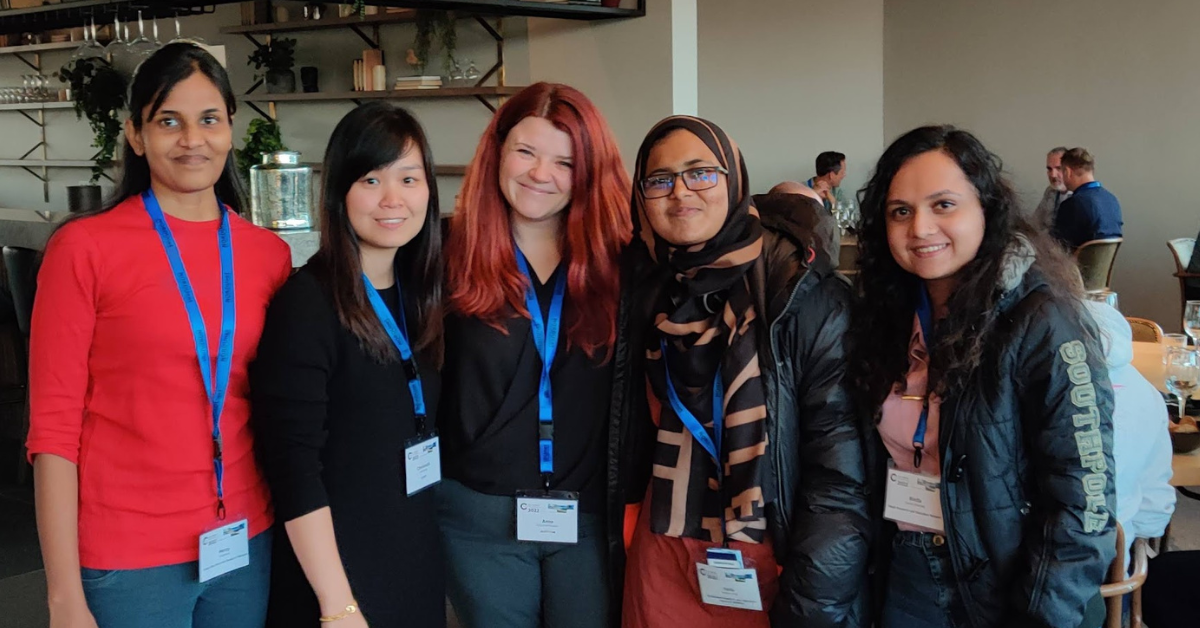The COVID-19 lockdowns forced universities across the region to close their doors for months, causing the academic progression of hundreds and thousands of students to come to a standstill. Thankfully, in several Asian nations, their local National Research and Education Networks (NRENs) enabled online learning via Zoom through a project titled “facilitating Distance Learning using Digital Conferencing facility [fDLuDCf] through an Asi@Connect grant and a partnership with NORDUnet. The initiative successfully ensured the continuity of higher education in these nations. Even today, as the pandemic subsides and everyday life returns to its normalcy, this online learning facility remains in use by many higher education institutions to enrich teaching possibilities.
The enormous success of the fDLuDCf project led the NRENs and their partners to invest in enhancing their infrastructure and associated services. To that end, Project BeLISAC (Building eLearning Infrastructure in South Asian Countries under TEIN), the successor to the fDLuDCf project, aims to develop IT infrastructure and services to expand online learning in six Asian countries. It is an international effort involving the Asi@Connect project, NORDUnet, alongside six national research and education networks – BdREN (Bangladesh), CamREN (Cambodia), LEARN (Sri Lanka), LERNET (Laos), NREN (Nepal), and DrukREN (Bhutan).
The BeLISAC project will see four data centers built across South Asia in Sri Lanka, Bangladesh, Bhutan, and Nepal to support this venture. These centers will be connected via the TEIN (aka Asi@Connect) network and provide Zoom services for research and education in their host countries. They will also extend the services to Laos and Cambodia. Alongside this, in line with the United Nations Sustainable Development Goals, project BeLISAC is also committed to empowering women to help create a more diverse and equitable NREN community in Asia.
The female engineers of project BeLISAC
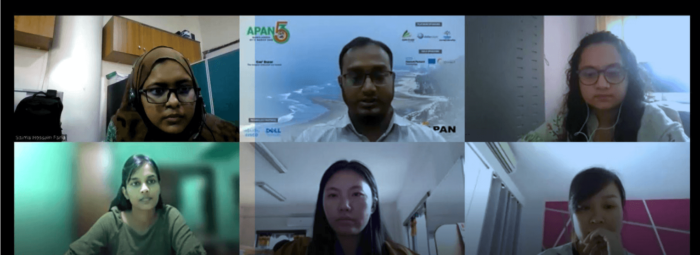
The physical infrastructure to be developed in the BeLISAC project will be maintained by female engineers trained under the project. To realize this, a female engineer from each country has been actively participating in the ongoing infrastructure development of the project under BdREN mentorship. Later, this team will be expanded with more opportunities for female interns to join and participate in this international initiative. Collectively, their efforts will enable the expansion of online learning to reach more individuals across Asia. In conversation with Arteculate, these engineers shared their experiences with the project and associated progress thus far.
Saima Hossain Faria of Bangladesh – BdREN
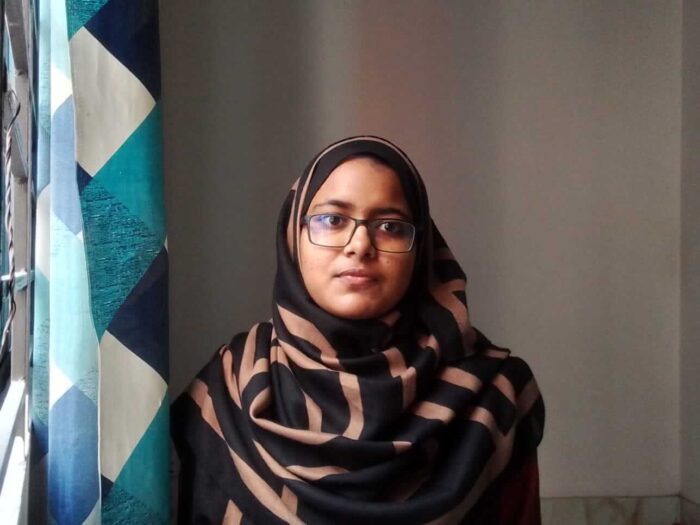
“Pre-pandemic, there wasn’t much online learning. But when COVID-19 hit Bangladesh, online learning became a reality. A system was designed and almost instantaneously adopted. Learning online became a new norm that was well accepted and assisted in-person classroom learning in Bangladesh. It has a lot of potential in this country,” says Saima reflecting on the state of online learning in Bangladesh before the pandemic.
Saima graduated from Bangabandhu Sheikh Mujibur Rahman Science and Technology University, majoring in Electronics and Telecommunication Engineering in 2019. She started an IT internship at a company in January 2022, and by April, she was recruited by BdREN for the BeLISAC project as a System/Network Engineer. First, she developed a web portal for the BeLISAC project with help from her colleagues at BdREN. Now, she is working on a Zoom dashboard to be deployed once all the servers are installed. It will collect data from the servers distributed across multiple countries and display statistics in a user-friendly format.
When asked about the challenges she has faced so far, Saima admitted that in Bangladesh, the issue of gender equality still needs to be addressed in technical professions. “I’ve had times when I haven’t gotten my dream job just because I’m a woman. Facing personal questions instead of technical ones in interviews has almost become a trend,” she adds. However, she believes that projects like BeLISAC will help make a future where such things would be a memory of the past.
Mercy Anandakumar of Sri Lanka – LEARN

In conversation with Arteculate, Mercy illuminated the current state of online learning in Sri Lanka. During the pandemic, Internet Service Providers (ISPs) agreed to offer free access to university Learning Management Systems (LMS) and Zoom through LEARN. In the post-pandemic era, most educational institutions prefer to continue their activities in a hybrid model, indicating the need for proper online learning infrastructure on a continued basis. Mercy received her Bachelor’s degree in Electrical and Electronic Engineering from the University of Peradeniya in 2021. As an undergraduate, she completed a 6-month industrial training program as an electrical and electronic engineering trainee in Sri Lanka Telecom and Vega Innovations. Her first job was as an Associate Implementation Engineer in early 2022. Her keen interest in telecommunications and networking led her to join the BeLISAC project.
Mercy noted that remote working was one of the team’s early challenges as they couldn’t meet physically. However, regularly scheduled online discussions allowed them to make continuous progress. Then, at the NORDUnet Conference 2022, which took place in Reykjavik, Iceland, in September 2022, the entire engineering team met in person for the first time and gained valuable technical insights from each other. Today, the teamwork between the engineers remains strong as they help each other learn and grow with the support of their mentors.
Binita Kusum Dhamala of Nepal – NREN

In Nepal, online platforms were in huge demand during the pandemic for classes, webinars, conferences, and more. This demand has carried over in the form of training programs, webinars, and such being shared live or recorded online for those interested in joining. Similarly, many universities in Nepal now offer remote education options and use online platforms or assignment submissions. All of this has created new opportunities and broken barriers for students.
Binita has a Bachelor’s in Electronics and Communication Engineering and is pursuing a Master’s in Information and Communication Engineering from the Institute of Engineering, Pulchowk campus. She wanted to work while completing her Masters, which inspired her to join the BeLISAC project. As a fresh graduate, she thought this was an excellent opportunity for her and applied to join the initiative as the representative engineer from NREN.
Binita is currently joining in on the mentoring sessions alongside the other engineers. “Before working on the physical devices, it was helpful to have practice on the emulator software. Right now, I’m involved in using Proxmox Virtual Environment, learning about networking via an emulated virtual environment, and more,” she adds. Reflecting on her experiences thus far, she recalls the NORDUnet Conference in Iceland as a highlight. It was here that all the engineers met in person for the first time and quickly became friends. While some of the technical sessions were challenging, Binita enjoys the opportunities she has received through this project to learn new technologies and contribute towards its success for the benefit of NREN.
Phuntsho Choden of Bhutan – DrukREN
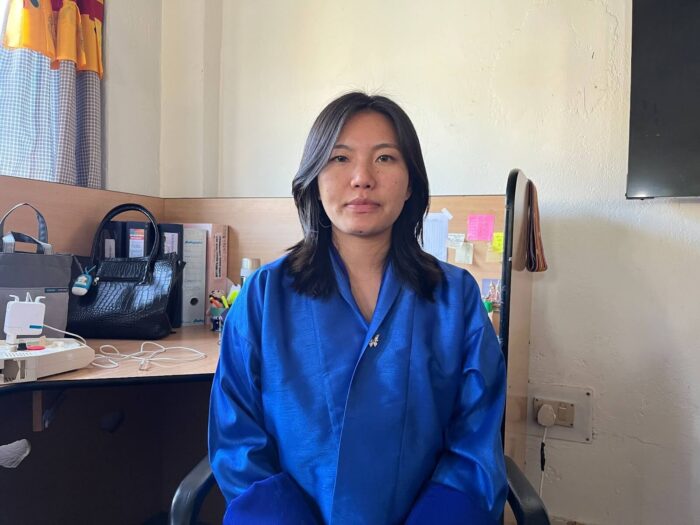
Speaking to Arteculate, Phuntsho noted how Bhutan’s education system struggled initially to embrace online learning. However, the nation’s higher education sector adapted to the new realities as Learning Management Systems made the assessment process easier for teachers and students. The promise of project BeLISAC is that online learning in the nation will see widespread adoption.
Phuntsho is a graduate of Uttarakhand Technical University, India, with a Bachelor of Technology in Electrical and Electronics Engineering in 2021. The pandemic caused her to graduate late and held her back from her Royal Civil Service Examination. She sent an application to DrukREN for the vacancy in project BeLISAC. After successfully navigating the interview, she secured the job and became the representative engineer from DrukREN.
After joining the project, she was part of the evaluation team that looked into getting a server with the proper specifications. Alongside another female engineer from her NREN, Phuntsho evaluated the documents they received from vendors according to the tender specifications. As of now, they have already installed the server for the Zoom cloud. Phuntsho also attends the weekly sessions conducted by the BdREN mentors to strengthen her technical skills and, thus, to help contribute to the project’s success.
Chansouda Phetsiriseng of Laos – LERNET
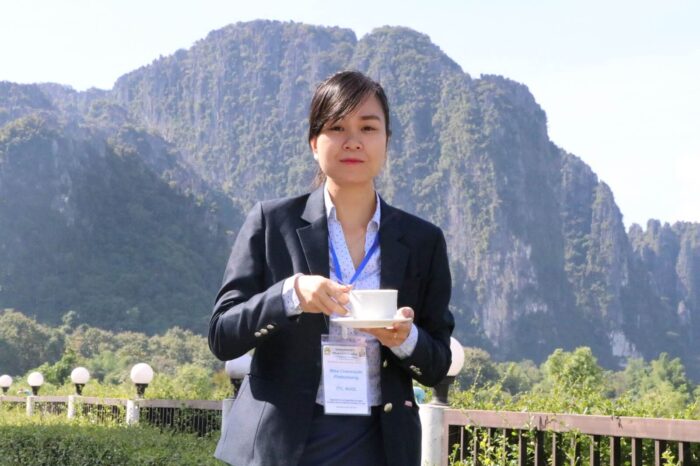
Online learning was first introduced in Laos in 2012 and is developing daily. The COVID-19 outbreak only accelerated its adoption as it replaced traditional classrooms. The government of Laos organized numerous workshops to help train teachers to conduct online classes. Chasouda observed that more educators in Laos are now embracing online learning in the post-pandemic era.
Chansouda currently works at the IT Center of the National University of Laos. She has worked as a network engineer and part of LERNET since 2015. Her primary responsibilities are maintenance, monitoring, and configuring the university network and LERNET. Additionally, she works as an online learning content developer and IT support staff for lecturers conducting classes remotely.
So far, Chansouda too has been a part of the mentoring sessions and the NORDUnet Conference. She strongly believes the BeLISAC project will significantly benefit Laos. She said, “It will help improve and expand the knowledge of female engineers in my country. BeLISAC will also help expand content and resource sharing among institutions and NRENs, both domestic and international. It’ll also increase ICT integration and education opportunities and improve teaching towards modern education modalities.”
The future of project BeLISAC
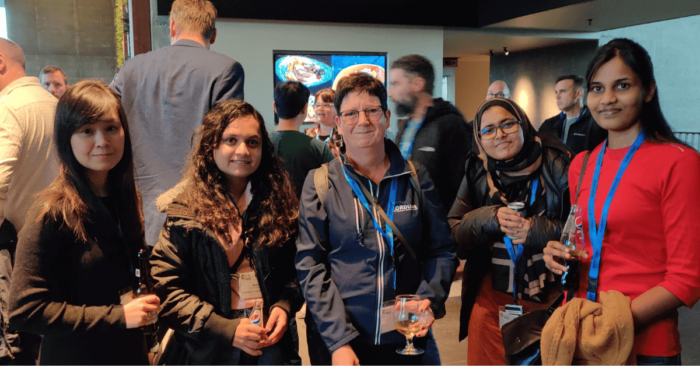
Looking towards the future, each engineer firmly believes in the transformative potential of project BeLISAC. For instance, Saima from Bangladesh shared that it would “contribute to increasing adoption of online learning in Bangladesh.” Phuntsho from Bhutan further added that “with the on-premise Zoom cloud, the rollout will be faster and greater security will be provided, among many other benefits. These benefits will help provide better online services with good connectivity for online learning in Bhutan.” The other engineers echoed similar sentiments for their respective countries.
The investments in computing infrastructure and capacity development set the stage for improved access to online learning opportunities. This is the vision the team of committed engineers is currently working towards. So what’s next for project BeLISAC? Mercy shared, “As part of the final task, the female engineers will deploy and configure Zoom servers in their respective national R&E network organizations. We will also be offering internship programs that will help empower the women of our countries in technical jobs.”
The BeLISAC project has demonstrated that many well-qualified women engineers can and will contribute essentially to any organization. The fact that the project partners are already acknowledging this and are committed to finding ways of integrating the women engineers into their permanent staff after the seed funding expires is a clear testament to this. Of course, such ambitions should go beyond the BeLISAC project as it serves as a lighthouse project that shows others the way to follow.
Granted, changing work cultures and habits takes time and continuous dedicated actions. Nevertheless, building on the success of the BeLISAC project with more partners to spawn additional initiatives would enable more women to reach their full potential. Such efforts have a high potential for benefiting participating organizations and countries as they’ll unlock the latent potential of a large talent pool. Thus, bringing forward a skilled and committed workforce supporting economic growth and development for their respective nations and Asia.
